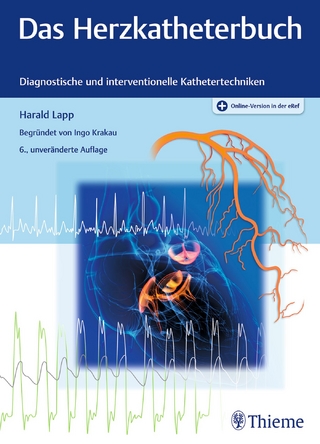
Managing Failed Anti-Reflux Therapy
Springer London Ltd (Verlag)
978-1-85233-909-8 (ISBN)
- Titel erscheint in neuer Auflage
- Artikel merken
th Although GERD was initially described in the early 19 century,it is essentially a c- sequence of our modern day largesse. Dietary factors and associated obesity have c- bined with as yet other unknown factors (e. g. a decrease in the prevalence of H. pylori?) to make GERD one of the most common diseases affecting western society. It is es- mated that up to 20 million adults in the United States suffer from GERD,and treatment of these individuals consumes approximately $10 billion annually,the majority of it for prescription drugs used to manage the disease and its symptoms. Fortunately, despite challenges presented by co-factors resulting in GERD (diet, obesity, etc. ), therapy of GERD is largely successful. However, even a low failure rate for a therapy used in the management of GERD still results in large numbers of affected patients because of the high prevalence of this disease. Use of a conservative estimate of a failure rate of 5% translates to 1 million ineffectively treated and unhappy patients. How to manage these patients is the subject of this book. Why is publication of this book important now? Several factors prompted us to work on this project. Mature results for proton pump inhibitor use are available,making this an appropriate time to review outcomes of PPI therapy of GERD. Similarly,mature results are now available for minimally invasive surgical therapy for GERD.
The Epidemiology and Pathophysiology of Gastroesophageal Reflux Disease.- History of Medical and Surgical Anti-Reflux Therapy.- Medical Management of GERD: Algorithms and Outcomes.- Complications of GERD: Esophagitis, Stricture, Barrett’s, and Cancer.- Principles of Successful Surgical Anti-Reflux Procedures.- Acute Complications of Anti-Reflux Surgery.- Persistent Symptoms after Anti-Reflux Surgery and their Management.- Technical Surgical Failures: Presentation, Etiology and Evaluation.- Symptoms after Anti-Reflux Surgery: Everything Is Not always caused by Surgery.- The Medical and Endoscopic Management of Failed Surgical Anti-Reflux Procedures.- Reoperation for Failed Anti-Reflux Surgery.- Management of Alkaline Reflux.- Management of the Short Esophagus.- Esophagectomy: Indications, Techniques, and Outcomes.- Vagal Sparing Esophagectomy.- Future Directions of Therapy for GERD.
| Erscheint lt. Verlag | 13.10.2005 |
|---|---|
| Zusatzinfo | X, 196 p. 76 illus., 9 illus. in color. |
| Verlagsort | England |
| Sprache | englisch |
| Maße | 178 x 254 mm |
| Themenwelt | Medizinische Fachgebiete ► Chirurgie ► Herz- / Thorax- / Gefäßchirurgie |
| Medizinische Fachgebiete ► Innere Medizin ► Gastroenterologie | |
| ISBN-10 | 1-85233-909-8 / 1852339098 |
| ISBN-13 | 978-1-85233-909-8 / 9781852339098 |
| Zustand | Neuware |
| Haben Sie eine Frage zum Produkt? |
aus dem Bereich



